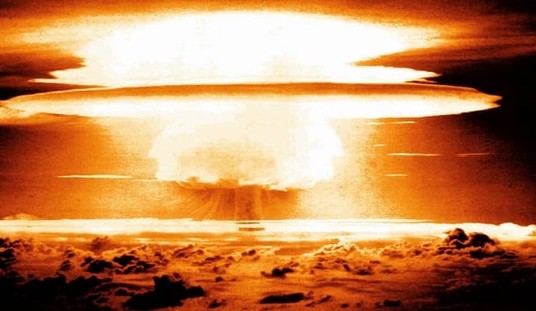Yesterday was a bad day for conservatives in Kansas, and by extension nationwide. Dan Spencer had the breakdown earlier today of the extent to which the moderates and Chamber of Commerce types consolidated power in one of the most conservative states in the country. This was yet another example, following closely on the heels of the Republican convention itself, of how the Republican Party is using the depression and disarray caused within the conservative movement that has been caused by the Trump campaign to consolidate power in the party and marginalize actual conservatives.
A certain narrative has sprung up about the Trump phenomenon that conservatives have been unwilling or unable to counter. That narrative is that unreasonable conservative anger over Republican failure to achieve impossible goals is what led to the rise of Trump. There’s a surface-level appeal to this sort of argument, but it’s lazy and incorrect. It doesn’t even make factual sense – that voters who demanded an unreasonable amount of ideological purity would have been responsible for the least orthodox conservative in the entire field, a guy who had spent most/all of his life donating to Democrats and who openly mused about supporting Planned Parenthood, opposing the free market, raising the minimum wage, and speaking out both sides of his mouth on virtually every issue.
Here’s what’s probably true: hard-line conservative anger (reasonable or not) is what led to the refusal of conservative voters to consolidate behind someone who would have been better suited than Ted Cruz to appeal to the moderate Republican voters who were needed to stop Trump. I’m not here to re-litigate the primaries, but I think in prior years, without the simmering anger that has been building since at least 2004 with the fecklessness of the Republican primary, many voters would have been more willing to overlook Rubio’s relatively mild deviations from conservative orthodoxy and unite behind him as the best candidate to confront Trump in the more moderate post-Super Tuesday states.
But all that is completely different from the assertion that these voters are the ones who carried Trump to victory in the first place. And to the extent that failure to consolidate behind an acceptable alternative to Trump can be “blamed” on conservatives, it’s also the phenomenon that led directly to the nominations of establishment figures Mitt Romney and John McCain. It isn’t new at all.
But the establishment and moderates have successfully demagogued the Trump phenomenon to the point that this narrative has taken hold, and they are using it against some of the people who are most opposed to Trump – people like Tim Huelskamp, who was a proud opponent of Trump up until the moment of his defeat. The truth is that two kinds of Republicans are most likely right now to remain opposed to Trump – the most liberal Republicans in Congress who are disgusted personally by Trump and/or who represent districts/states that are likely to reject Trump, and the most conservative Republicans who are disgusted by his ignorance and liberalism. It’s almost like a horseshoe, where the Mike Lees and Ted Cruzes of the world meet with the Susan Collinses and Mark Kirks at the bottom.
At the top of the horseshoe are the vast majority of Republicans who stand mainly for going along to get along, and most of them have fallen in line behind Trump. This is exactly the kind of Republican that McConnell, Ryan, Priebus et al want, but they are dishonestly using Trump as a weapon to unseat the Republicans who are most likely to oppose him. And of course, Trump has no interest in putting a stop to it; I think it’s likely he’s oblivious to the fact that it’s even happening. To him, the sole determiner of whether a person is a good member of Congress is whether they praise Trump or not.
Moderate Republican forces have, at the same time, taken advantage of the fact that the conservative movement has been deeply dispirited by the losing fight against Trump, and their disillusionment with fixing the Republican party at all to help them win primaries like the one in Kansas yesterday, and they will likely continue to do so. I would not be surprised if yesterday was just the tip of the iceberg, and a wave of these elections occurred throughout the rest of the year and continuing at least into 2018.
Leadership abhors Trump, but they are perfectly willing to use his vindictiveness and the vindictiveness of his supporters to purge a common enemy from the party: doctrinaire conservatives. The end of this process is not difficult to see: a party that is much more under the thumb of the establishment, but much smaller as a result. And leadership will be fine with this result because they don’t care all that much about actually effectuating conservative reform, as long as they are able to keep their own jobs, even if they are in the minority.
And so the conservative movement begins its search for a new home. It’s going to be a long, tough road ahead folks.
Note: I’m well aware of the ongoing war in Kansas over the Brownback tenure and associated budgetary battles. As Dan noted this morning, that explains some but not all of what happened in Kansas in their legislature, and explains zero per cent what happened to Huelskamp, who isn’t even in state government.













Join the conversation as a VIP Member